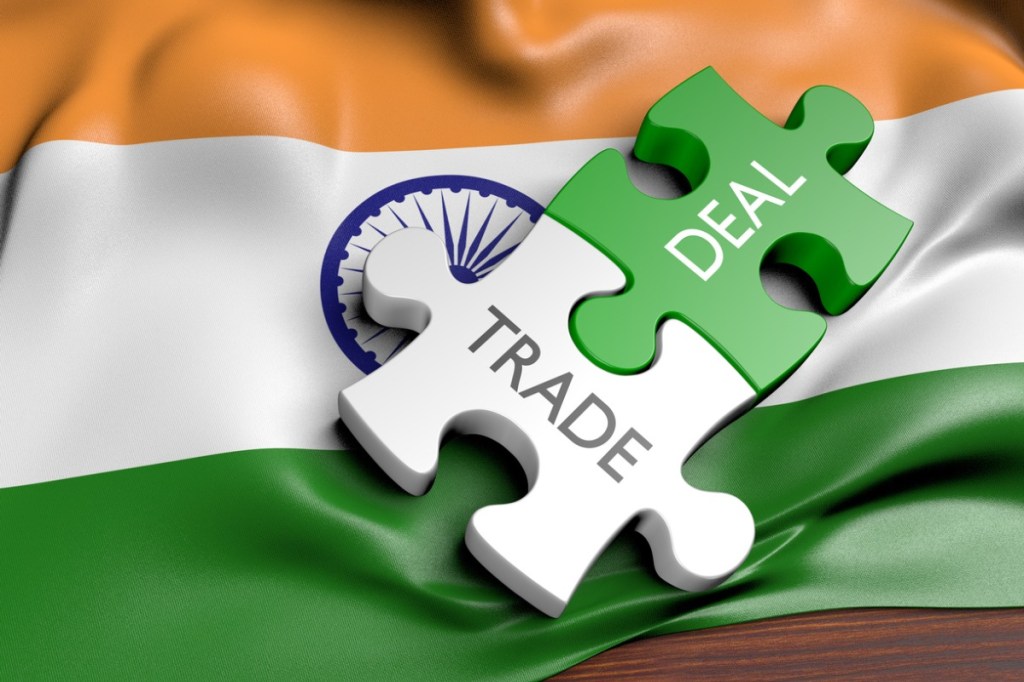Australia has signed an historic trade agreement with India that will make exports to India cheaper and create new opportunities for businesses.
The Australia-India Economic Cooperation and Trade Agreement (AI ECTA) will see tariffs eliminated on more that 85 per cent of Australian goods exported to India, valued at $12.6 billion per year. This will rise to almost 91 per cent over 10 years, bringing the value to $13.4 billion.
Australian households and businesses will also benefit, with 96 per cent of Indian goods imports entering Australia duty-free on entry into force.
India is the world’s largest democracy and the world’s fastest-growing major economy, with GDP projected to grow at nine per cent in 2021-22 and 2022-23 and 7.1 per cent in 2023-24.
In 2020, India was Australia’s seventh largest trading partner, with two-way trade valued at $24.3 billion, and sixth largest goods and services export market, valued at $16.9 billion.
The Government’s goal is to lift India into our top three export markets by 2035, and to make India the third largest destination in Asia for outward Australian investment.
Prime Minister Scott Morrison said the agreement would create enormous trade diversification opportunities for Australian producers and service providers bound for India, valued at up to $14.8 billion each year.
“This agreement opens a big door into the world’s fastest growing major economy for Australian farmers, manufacturers, producers and so many more,” the Prime Minister said.
“By unlocking the huge market of around 1.4 billion consumers in India, we are strengthening the economy and growing jobs right here at home.”
Benefits of the AI ECTA include, but are not limited to, tariffs up to 30 per cent on avocados, onions, broad, kidney and adzuki beans, cherries, shelled pistachios, macadamias, cashews in-shell, blueberries, raspberries, blackberries, currants will be eliminated over seven years.
Tariffs on almonds, lentils, oranges, mandarins, pears, apricots, and strawberries will be reduced, improving opportunities for Australia’s horticulture industry to supply India’s growing food demand.
The resources sector will benefit from the elimination of tariffs on entry into force for coal, alumina, metallic ores, including manganese, copper, and nickel; and critical minerals including titanium and zirconium.
Minister for Trade, Tourism and Investment Dan Tehan said AI ECTA would also further strengthen the people-to-people links between our countries. India was Australia’s third largest market for services exports in 2020.
“This agreement will turbocharge our close, long-standing and highly complementary economic relationship in areas such as critical minerals, professional services, education and tourism,” Tehan said.
“It will create new opportunities for jobs and businesses in both countries, while laying the foundations for a full free trade agreement.”
The agreement will also see Australia provide new access for young Indians to participate in working holidays in Australia, which will provide an uplift to our current workforce shortage.
Places in Australia’s Work and Holiday program will be set at 1,000 per year and Australia will have two years to implement the outcome. This is expected to contribute to both workforce requirements and to boost tourism to support our post-COVID recovery.
In a boost to our STEM and IT workforces, the length of stay for an Indian Student with a bachelor’s degree with first class honours will be extended from two to three years post study in Science, Technology, Engineering or Mathematics (STEM) and information and communications technology (ICT) sectors.
Australia and India have also agreed to undertake cooperation to promote agricultural trade as part of the agreement and will now work toward concluding an enhanced agricultural Memorandum of Understanding (MoU).

